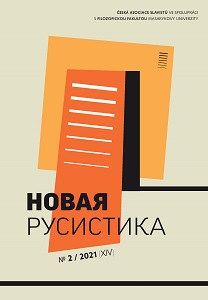Онтологическая аллегория на поэтическом "холсте" стихотворения Владислава Ходасевича "Слепой"
Ontological allegory on the poetic "Canvas" in the poem by Vladislav Khodasevich The Blind
Author(s): Tetiana Basniak, Olha ChervinskaSubject(s): Language and Literature Studies, Translation Studies
Published by: Česká asociace slavistů
Keywords: poem The Blind; Vladislav Khodasevich; ontological allegory; mediation center; translation; receptive resource; eclogue
Summary/Abstract: The poem by Vladislav Khodasevich The Blind (1922–1923) is regarded in this article in the context of its creation, the highest point of which was the émigré page of friendship with Andrei Bely. The Blind has been written due to the theoretical debates on poetry that constantly occurred between the two poets. Khodasevich saw the life of any creative person as a "lyrical improvisation" of being, whereas the questions that life posed to him, he mostly covered in a dramatic plot, thereby offering the reader a capacious metanarrative, The Blind (in a stanza format—nine-line nona) being a very vivid example. In accordance with the principle of dichotomy, the helplessness of a blind person is described through the co-presence of a sighted person who is deprived of any definite emotion. In this way, the "possible world" of the poem consists of two worlds, forming consequently a certain receptive impression. "Conceptual ordering" (the term introduced by Claude Lévi-Strauss) is manifested in all the poetological parameters of the text (meter, rhyme order, vocabulary, figures, etc.). The Ukrainian (B. Bunchuk), German (Kay Borowsky) and English (Peter Daniels) translations of the poem reveal the receptive resource of The Blind, which in its genre parameters is close to the eclogue.
Journal: Новая русистика
- Issue Year: XIV/2021
- Issue No: 2
- Page Range: 5-14
- Page Count: 10
- Language: Russian

